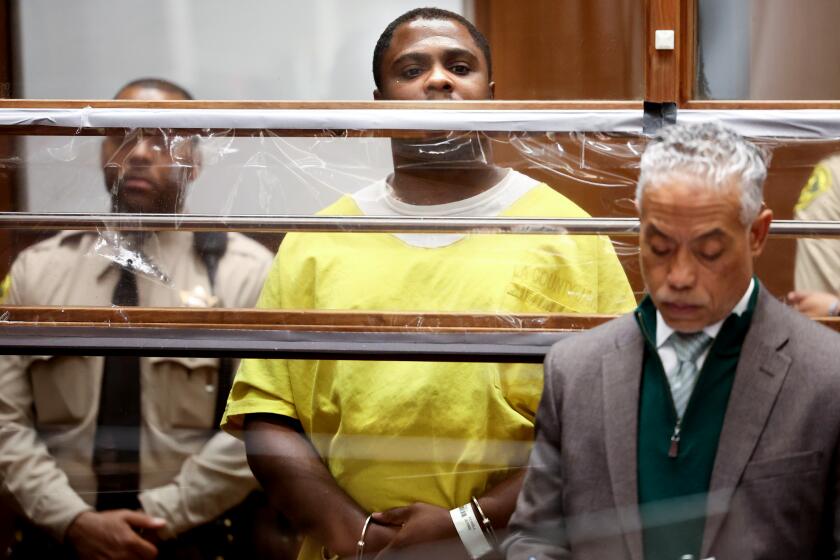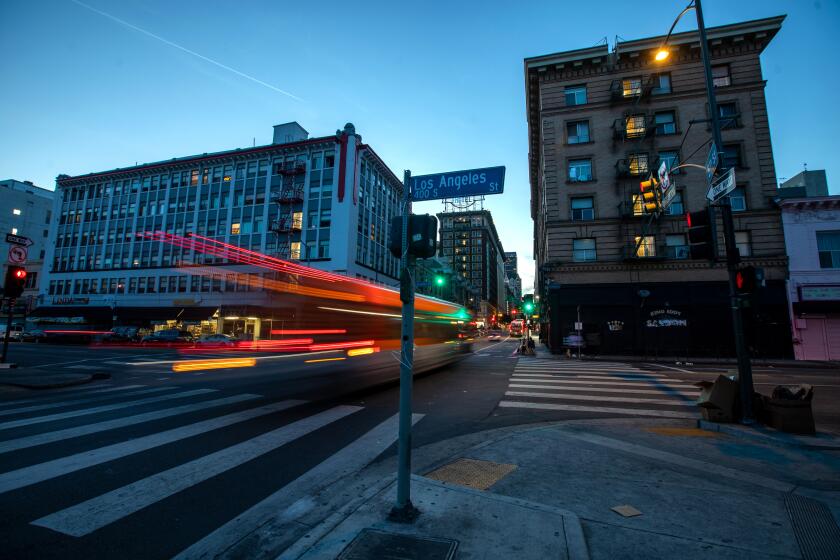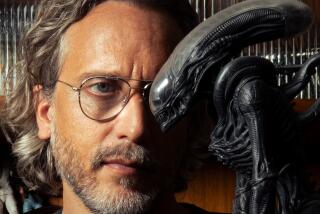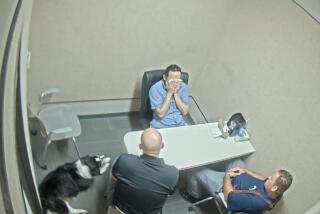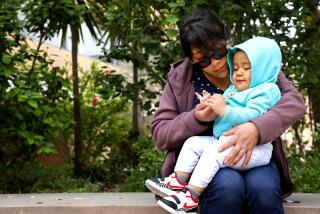He was trying to get off the L.A. streets. Then an alleged serial killer targeted him
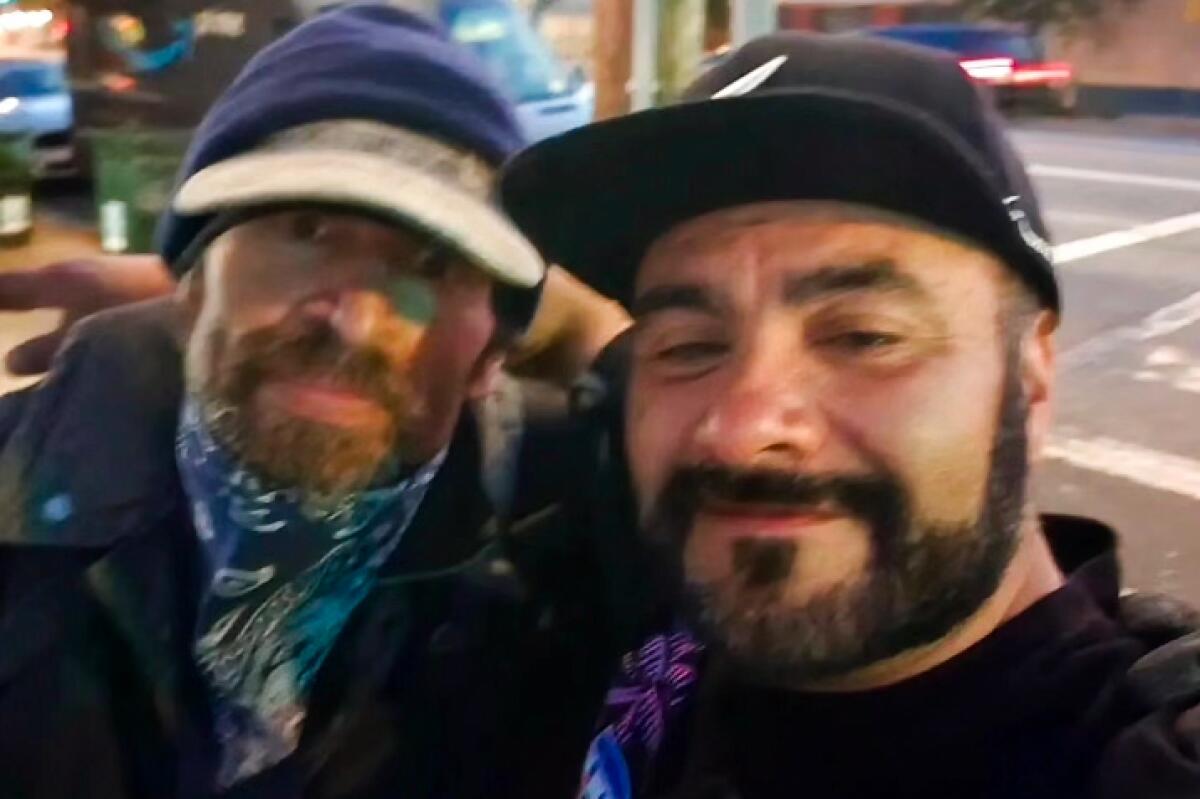
Shawn Alvarez was tired of being homeless.
It had been about a decade since he’d started living on the streets after moving out of his father’s house. He had couch surfed at friends’ homes for a bit before slipping into full-blown homelessness. Drugs, mental health issues and a criminal history contributed to his situation.
But in the year before he was shot and killed by a man now accused of targeting three homeless people, Alvarez’s sister and best friend say, the 52-year-old was trying to get clean and get off the streets. He wanted to work, they said.
“He said, ‘I really want to get out of here. I really want to get a job, get a place,’” said David Herrera, a friend of Alvarez’s from childhood. “That’s what hurts the most. He wanted it. Some people don’t want it.”
But Alvarez’s dreams were cut short. Police and prosecutors say he was the fourth victim of Jerrid Powell, who they say spent the days after Thanksgiving targeting sleeping homeless men and killing them. Powell also shot and killed another man in a follow-home robbery, police say.
Powell was a popular athlete in high school and had a job helping at-risk youth in Compton after he graduated. But he also had a criminal record and two restraining orders filed against him by women, according to court records. Investigators have yet to release a suspected motive for the four killings.
Herrera had fallen out of touch with Alvarez since their youth. Both grew up in Eagle Rock, and they met around the age of 14, when Herrera was dating Alvarez’s sister. They occasionally communicated as they got older. But Herrera did not know much about Alvarez’s path after they fell out of contact.
Alvarez’s story is emblematic of the long and tortured path that leads some people to homelessness despite being raised in fairly stable settings. He struggled with the law and drug use in his teens, and spent large chunks of time without a father around, as his was in the military, according to sister Dawn Alvarez.
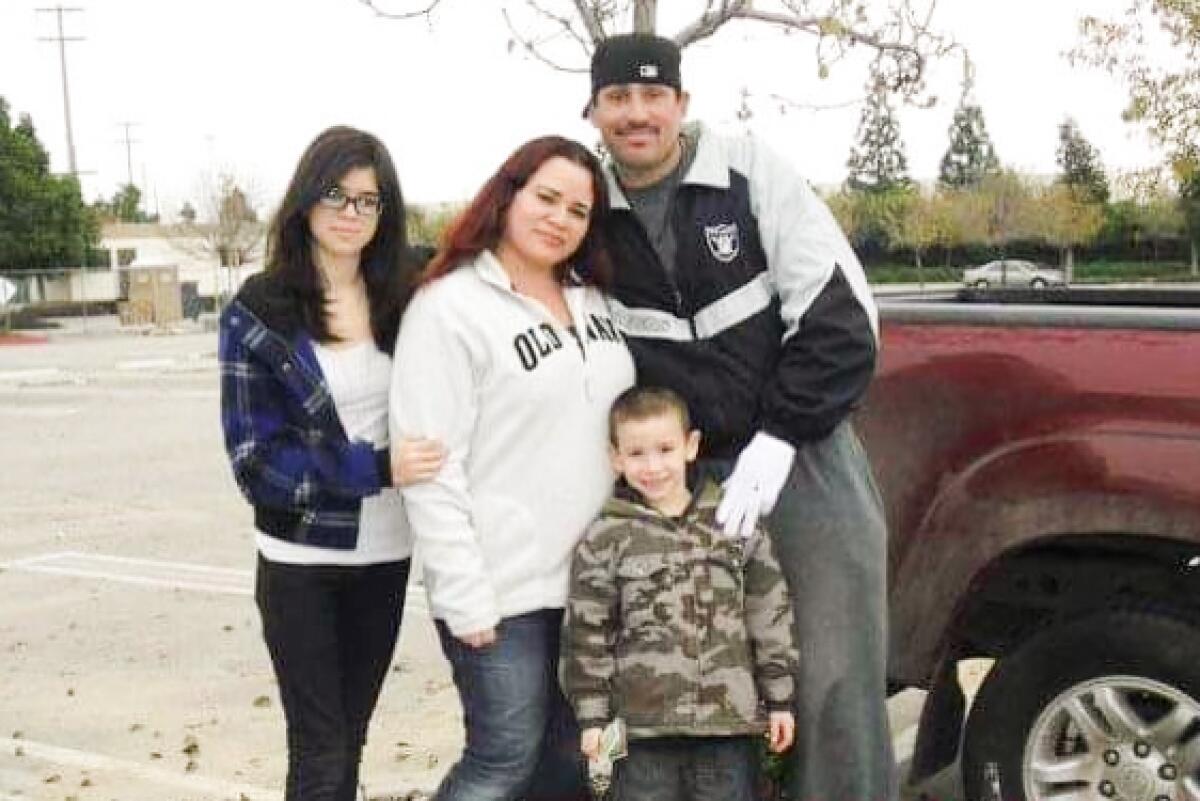
She also believes that her brother was dealing with undiagnosed mental health issues. Still, she said, he had dreams of getting off the streets and did not deserve to be cut down in cold blood in his sleep.
She remembered him as the big brother who loved to play pranks on her. He would take her pink bike and ride it to friends’ houses, or steal her Barbies and cut their hair off.
“You get on each others’ nerves, but you love each other,” she said. “Typical brother-sister relationship.”
Alvarez learned plumbing at an early age, but an injury he suffered in prison kept him from pursuing it as an occupation, said Dawn.
Herrera did not know Alvarez was homeless until earlier this summer. Another friend who had fallen into homelessness told Herrera that Alvarez was living on the streets. Herrera decided to go look for his old best friend.
More than a week after the arrest of Jerrid Joseph Powell in connection with the shooting deaths of three homeless men and an L.A. county employee, much remains wrapped in mystery, including a motive in the slayings.
He scoured the streets with friend for hours before they located Alvarez on a bike. Alvarez did not want to get into Herrera’s vehicle.
“‘David, I dont want to get in your car. I’m homeless. I feel dirty,’” Herrera recalled his friend saying. “I told him to get in the car. I don’t care.”
Herrera put Alvarez up in a hotel that night.
Herrera had been working to start a foundation that he hoped would raise money to help get specific homeless individuals shelter. He decided Alvarez would be the first person he helped.
He was trying to raise $25,000 to get Alvarez a studio apartment for at least six months.
“He was gung-ho about it,” said Herrera.
When he heard about Alvarez’s killing, he wondered whether there was even more he could have done. Should he have put Alvarez up in his garage? Let him pitch a tent in his backyard?
Dawn Alvarez also wondered whether there was more she should have done. She had kept her distance from her brother since he got out of prison after a three-year sentence for taking someone’s car without consent more than a decade ago. She did not want bad influences around her children, she said.
“I didn’t want that life around them. I distanced myself. It was hard, but I had to do that,” she said. “It’s hard because of the guilt. I guess everyone has guilt. What if I did this? Shoulda, woulda, coulda. In all reality, you can’t.”
Occasionally, Dawn would hear from her homeless brother. He would call her. He didn’t have a cellphone, but he had relationships with old friends and would go to their houses and use their phones, she said.
A Times investigation has found that many of the AIDS Healthcare Foundation’s more than 1,300 residents live in squalid conditions, with dozens under the threat of eviction.
The last time she heard from him was about a year ago. Her brother sounded clearheaded.
“He told me he loved me and he was sorry and he wanted to see us. He asked about my kids. I told him I had a grandson,” she said.
She said that Alvarez was supposed to visit her in the mountains in Lebec, where she lives with her husband.
“He was supposed to come up here and spend the weekend. He was going to get a phone and call me back,” she said.
But that was her last conversation with her brother.
He never called again.
More to Read
Sign up for Essential California
The most important California stories and recommendations in your inbox every morning.
You may occasionally receive promotional content from the Los Angeles Times.

